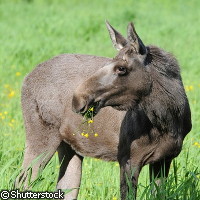LIFEWATCH: Swedish biodiversity internet database gets the go-ahead
The first national node of the pan-European e-Science and Technology Infrastructure for biodiversity data and observatories, LIFEWATCH, will soon take up work in Sweden, preparing a freely accessible species database of the country. The Swedish Research Council has granted SEK 36 million (EUR 3.75 million) in funding to the scheme, and each of the 7 project participants will add another SEK 10 million (EUR 1 million). The wider pan-European LIFEWATCH project is currently in the final year of its preparatory phase. For the 3 years of its execution, it received EUR 5 million in funding under the Research Infrastructures action of the Seventh Framework Programme (FP7). It brings together 29 partners, including the Swedish Research Council, the Swedish Museum of Natural History and the University of Gothenburg. All three will be involved in the implementation of the Swedish contribution to LIFEWATCH, along with the Swedish Species Information Center at the Swedish University of Agricultural Sciences (SLU), the Universities of Umeå and Lund, the Swedish Meteorological and Hydrological Institute (SMHI) and the Swedish Board of Fisheries. 'The Swedish part is now the first node in Europe to have been granted funding, and it's expected to be a core foundation in the entire European structure,' states Professor Lars Börjesson of the Swedish Research Council. As part of the major European drive to set up research infrastructures in various fields of science, LIFEWATCH will collate information on the state of animal and plant species all over Europe. It will combine a system of marine, terrestrial and freshwater observatories, and give the research community common access to interlinked, distributed data from databases and monitoring sites. In addition, it will provide computational facilities in virtual laboratories with analytical and modelling tools as well as user support and training. Uniting the myriad of data and information in a common format is intended to facilitate analyses and will be of great value to researchers, environmental analysts and governmental authorities alike. 'With just a few clicks you will be able to directly find out if a species has decreased or increased, what happens if the climate or the water quality changes, or what environmental factors are key to forest species in Götaland,' says Professor Ulf Gärdenfors of SLU, who will coordinate the Swedish LIFEWATCH project. If all goes according to plan, the Swedish database will be up and running in three years' time.
Countries
Sweden

